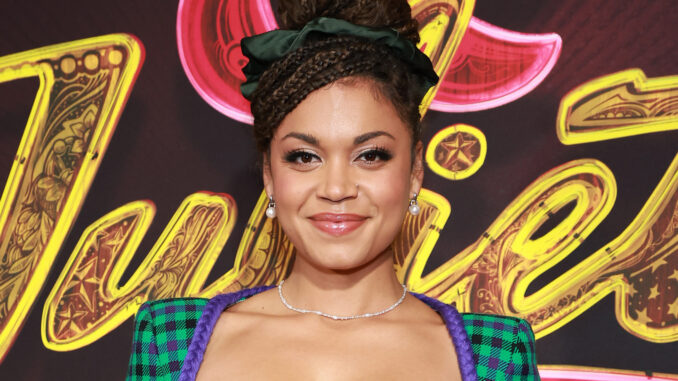
The Prairie’s New Dawn: When Little House Meets the Modern Age
The announcement hit the cultural airwaves like a dropped stitch in a carefully woven tapestry, or perhaps, more accurately, like a modern satellite dish suddenly sprouting from the roof of a log cabin. Netflix, the titan of streaming, had cast Barrett Doss, a vibrant and dynamic actress known for her role in the contemporary drama Station 19, in its upcoming adaptation of Little House on the Prairie. On the surface, it’s a casting decision. Beneath, it’s a collision of timelines, a deliberate shattering of comfortable nostalgia, and a potent symbol of how stories evolve, adapt, and are reclaimed in the 21st century.
Little House on the Prairie is more than just a book series or a beloved television show; it is an American mythos, a foundational text in the narrative of pioneer spirit, resilience, and homespun virtue. It evokes images of sun-drenched fields, gentle lamplight, bonnets, and the enduring strength of the Ingalls family carving a life from the untamed wilderness. For generations, it has been a time capsule, a seemingly unblemished window into a simpler, albeit harsher, past. Its comfort, however, is rooted in a particular, often whitewashed, historical lens, one that largely omitted the vibrant and complex tapestry of cultures that existed alongside, and often in conflict with, the white settler experience. To touch Little House is to touch a sacred cow, a nostalgic artifact held dear in the collective memory.
Enter Netflix, the disruptor par excellence. Its empire is built on reinterpretation, on identifying cherished intellectual property and giving it a modern sheen, often with an unflinching eye towards inclusivity and global appeal. Netflix operates not within the constraints of historical documentary but within the boundless realm of narrative possibility. And then there is Barrett Doss, an actress whose most prominent role in Station 19 places her at the heart of contemporary urban heroism, grappling with issues of race, gender, justice, and the chaotic immediacy of modern life. She embodies a strength that is both physical and emotional, a contemporary agency that feels miles removed from the gentle stoicism of Laura Ingalls Wilder’s world.
The casting of Doss in Little House is not merely an actor joining a project; it is an illustrative moment where these disparate worlds collide. The initial reaction, for many, is an audible gasp, a cognitive dissonance that momentarily unmoors the familiar. How can the actress from a fast-paced, racially diverse, modern drama possibly inhabit the sepia-toned world of the prairie? The visual disjuncture is immediate, provocative, and entirely intentional. It forces us to confront the unspoken assumptions embedded within our most cherished narratives.
But the implications run deeper than superficial appearance. This casting, whether Doss plays an existing character or a newly introduced one, opens a narrative frontier. It demands that we ask: Whose stories are we truly telling when we recount the pioneer era? Who gets to be a “pioneer”? The very term often conjures images of white settlers, overlooking the Indigenous peoples whose lands were claimed, and the diverse individuals, including people of color, who also traversed these landscapes, often under vastly different and more perilous circumstances. By introducing a Black actress into this historically monochromatic landscape, Netflix isn't erasing history; it's challenging the omissions within the popular historical narrative. It's inviting us to consider a more expansive, more honest, and ultimately, more richly textured version of the past, even if that version is a fictional reimagining.
This decision serves as a potent illustration of storytelling’s evolving role. Narratives are not static relics; they are living things, constantly reinterpreted through the lens of new generations and changing societal values. Just as Shakespeare’s plays are reimagined in different eras and settings, classic stories can be re-fertilized with contemporary perspectives to find new relevance. This Netflix Little House will not be the Little House of our grandparents, nor should it be. It will be a Little House for an audience grappling with questions of identity, belonging, and historical reckoning in an increasingly interconnected world. It signals that even the most seemingly immutable stories can, and perhaps must, bend to reflect the broader human experience.
The casting of Barrett Doss in Little House on the Prairie is more than a news item; it is a narrative prairie fire, burning away old assumptions and clearing the ground for new growth. It is Netflix planting seeds of change in a familiar field, cultivating a new kind of story that respects the roots of the past while daring to grow towards a more inclusive, more representative future. It is a powerful reminder that the most compelling stories are not those that remain untouched in a time capsule, but those that are brave enough to evolve, to challenge, and to embrace the full, vibrant spectrum of human experience across every stretch of the prairie.